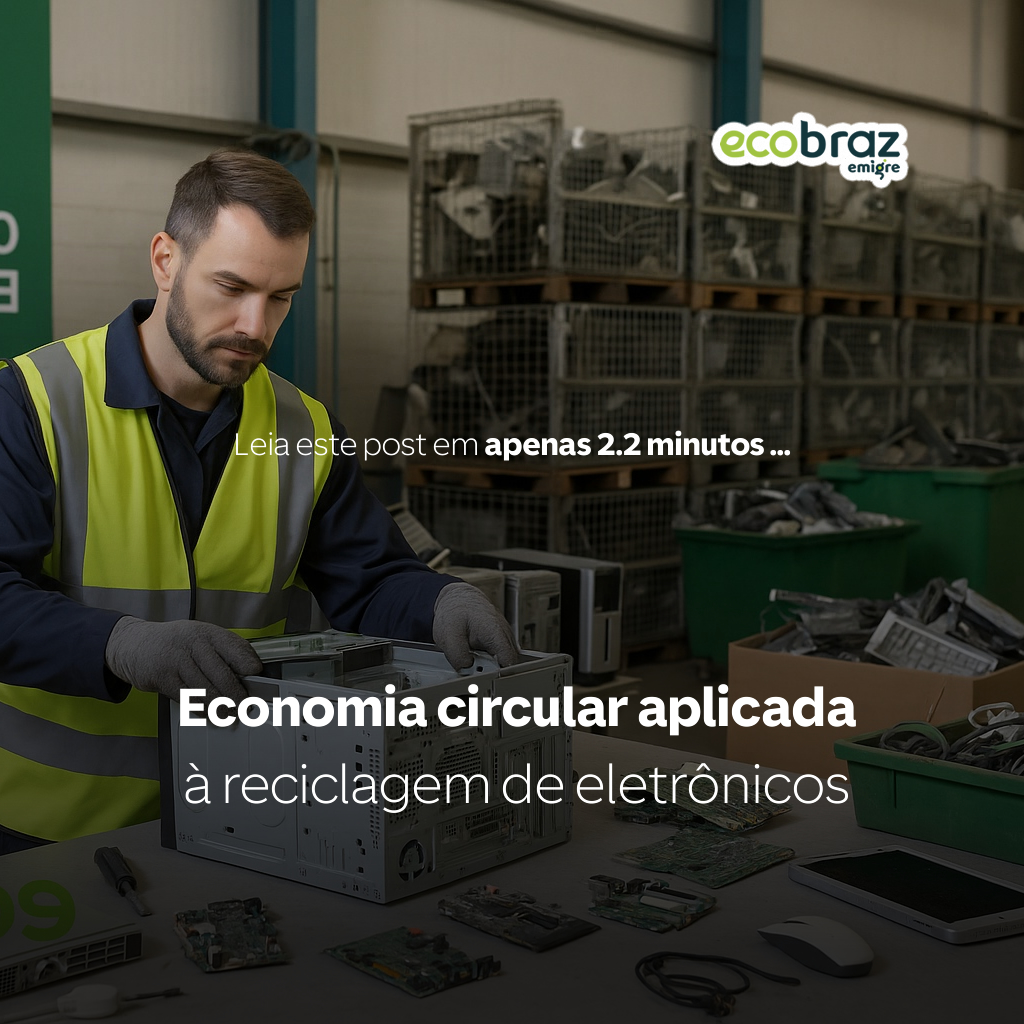Blog Ecobraz Eigre

Circular Economy Applied to Electronics Recycling
Introduction: The challenge of electronic waste
Brazil is the largest generator of electronic waste in Latin America, according to the UN, and less than 3% of that volume is properly recycled. This figure highlights the urgency of adopting innovative waste management models.
The circular economy emerges as an alternative to the traditional linear model of “extract, produce, consume, and discard.” In electronics, it means maximizing resource reuse, preventing metals, plastics, and valuable components from ending up in landfills or illegal dumps.
What is the circular economy?
The circular economy is a system that seeks to:
-
Reduce natural resource consumption.
-
Reuse products and components whenever possible.
-
Recycle materials to reintroduce them into the production chain.
It contrasts with the linear model and treats waste as a valuable input rather than a burden.
How to apply the circular economy to electronics recycling
-
Design for circularity
Manufacturers should develop products that are easier to dismantle and recycle. -
Reverse logistics
Implementing structured collection systems, such as those provided by Ecobraz, to ensure post-consumer equipment returns. -
Component reuse
Parts like circuit boards, chips, and connectors can be reused in new equipment or maintenance. -
Raw material recycling
Metals like copper, aluminum, gold, and silver are extracted from electronics and reintroduced into the production chain. -
Collaborative economy
Companies can share resources and reduce costs by integrating their recycling chains.
Benefits of the circular economy applied to electronics
-
Environmental → reduced landfill waste, preservation of natural resources, and less pollution.
-
Economic → recovery of valuable raw materials, lower production costs, and creation of new markets.
-
Social → job creation in recycling and digital inclusion through refurbished equipment.
-
Corporate → stronger ESG reporting, brand differentiation, and competitiveness in global contracts.
Ecobraz’s role in the circular economy
Ecobraz Emigre has become a global reference in circular economy practices applied to electronic waste:
-
World’s largest NGO in electronics recycling.
-
Nationwide collection and recycling capacity in Brazil.
-
Complete documentation → reports, ESG statements, manifests, and invoices.
-
Digital inclusion projects → refurbished equipment supports tech centers in underserved communities.
-
Reduced natural resource extraction → recycling electronics prevents further mining.
Practical examples of circular economy in electronics
-
Cable and wire processing to recover copper and recyclable plastics.
-
Corporate computer recycling with usable parts salvaged for maintenance.
-
Battery transformation into reusable raw materials processed safely.
-
Social projects receiving refurbished electronics for digital inclusion.
Conclusion: A sustainable and competitive model
The circular economy applied to electronics recycling is more than a trend: it is an urgent necessity in light of growing electronic waste.
👉 Ecobraz Emigre is the ideal partner for companies seeking to align sustainability, legal compliance, and competitiveness, offering circular solutions that transform waste into economic, environmental, and social value.

Deixe um comentário
O seu endereço de e-mail não será publicado. Campos obrigatórios são marcados com *